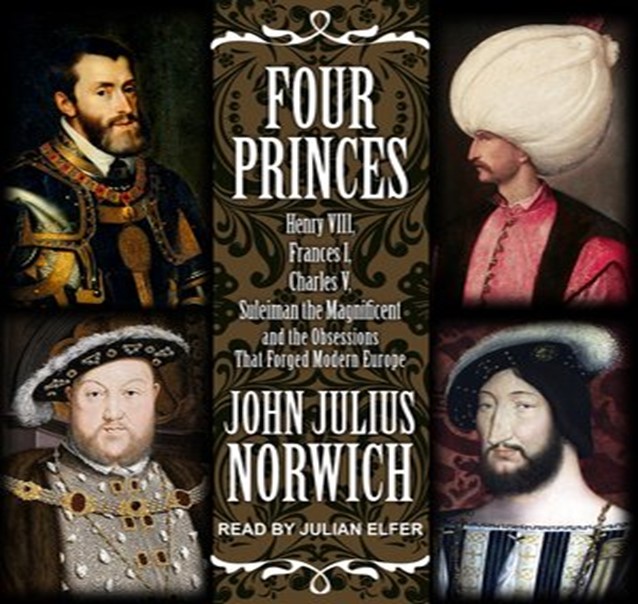

‘Never before had Europe been overshadowed by four giants – Henry VIII, Francis I, Charles V, Suleiman’. That’s how John Julius Norwich characterises the early 1500s in his book Four Princes. The four were all born in the 1490s and went on to shape Europe for centuries to come:
But these highlights mask the violence and divineness of religion that was unleashed during the period. Moreover, this wasn’t in the form of crusades against the Muslim Ottomans, though Charles has longed to reclaim the Holy Land, rather it was between and within the Christian kingdoms.
King Henry VIII famously shifted the authority of the Church from the Pope in Rome. This was less to do theology as Henry was a harsh critic of Luther’s Protestantism. In fact, he had earlier written a tract against the new theology that so impressed the Pope that Henry was given the title of ‘Defender of the [Catholic] Faith’. The cause of the break from Rome was Henry’s desire to annul his first marriage with Catherine of Aragon and to marry Anne Boleyn. The break from Rome resulted in a wave of persecution of Papal Catholics within England and the confiscation of assets from Catholic church.
Meanwhile, both Francis and Charles had to contend with the rise of Protestantism which was sparked by Martin Luther’s new theology and growing discontent with the corruption of the Catholic church. Their methods were not pleasant with Francis instituting a reign of terror – often killing whole villages of Protestants, banning new books, and eventually declaring that Protestantism was ‘high treason against God and mankind’ which justified these actions.
Then there were odd alliances. Francis felt surrounded by Charles lands, and Suleiman was pushing into Hungary which bordered Charles’ Germany – this provided the context for Francis and Suleiman to form an alliance against Charles. They fought together to reclaim Nice from Charles. The alliance was not just a military one, it was also a commercial one, where the French and Ottomans were able to freely conduct business in each other’s territory.
At the time, King Francis was condemned for forming an alliance with the Muslim power, but he thought the following:
‘I cannot deny that I keenly desire the Turk powerful and ready for war, not for himself, because he is an infidel and we are Christians, but to undermine the Emperor’s power, to force heavy expenses upon him, and to reassure all other governments against so powerful an enemy’
This way of thinking could be easily understood as it was Charles troops, during the course of one of the many incursions into Italy, that went on a rampage in Rome. The ensuing bloodbath was described as ‘one of the most horrible in recorded history’ and an eyewitness said ‘Hell has nothing compared to the present state of Rome’.
Aside from the violence so beloved by historians, we also learn about the social norms of the time. Henry was betrothed to his dead brother’s wife, Catherine, at the age of 12 and married her at 15. Marriage at the time was more about politics and it was normal for children to be betrothed to seal alliances.
Elsewhere, Suleiman was married to a Polish slave, Roxelana. She supposedly helped orchestrate the execution of Suleiman’s sons from other marriages to allow her son to later assume the throne. This may sound brutal, but it was the Ottoman tradition for all brothers of a new sultan to be executed, so it would be a race to the death between brothers once their father’s death was on the horizon.
History can clearly be tantalising. It can provide the idyllic time that we long to return to. It gives us an apparent cultural identity. It outlines the geography of our belonging. Yet from the time of these four princes, we learn that the era of the renaissance was also the era of brutal massacres, broken promises, and vicious family dramas. It turns out history can be as messy as real life.
Bilal
Spring sale - Prime Membership only £3 for 3 months! Get trade ideas and macro insights now
Your subscription has been successfully canceled.
Discount Applied - Your subscription has now updated with Coupon and from next payment Discount will be applied.